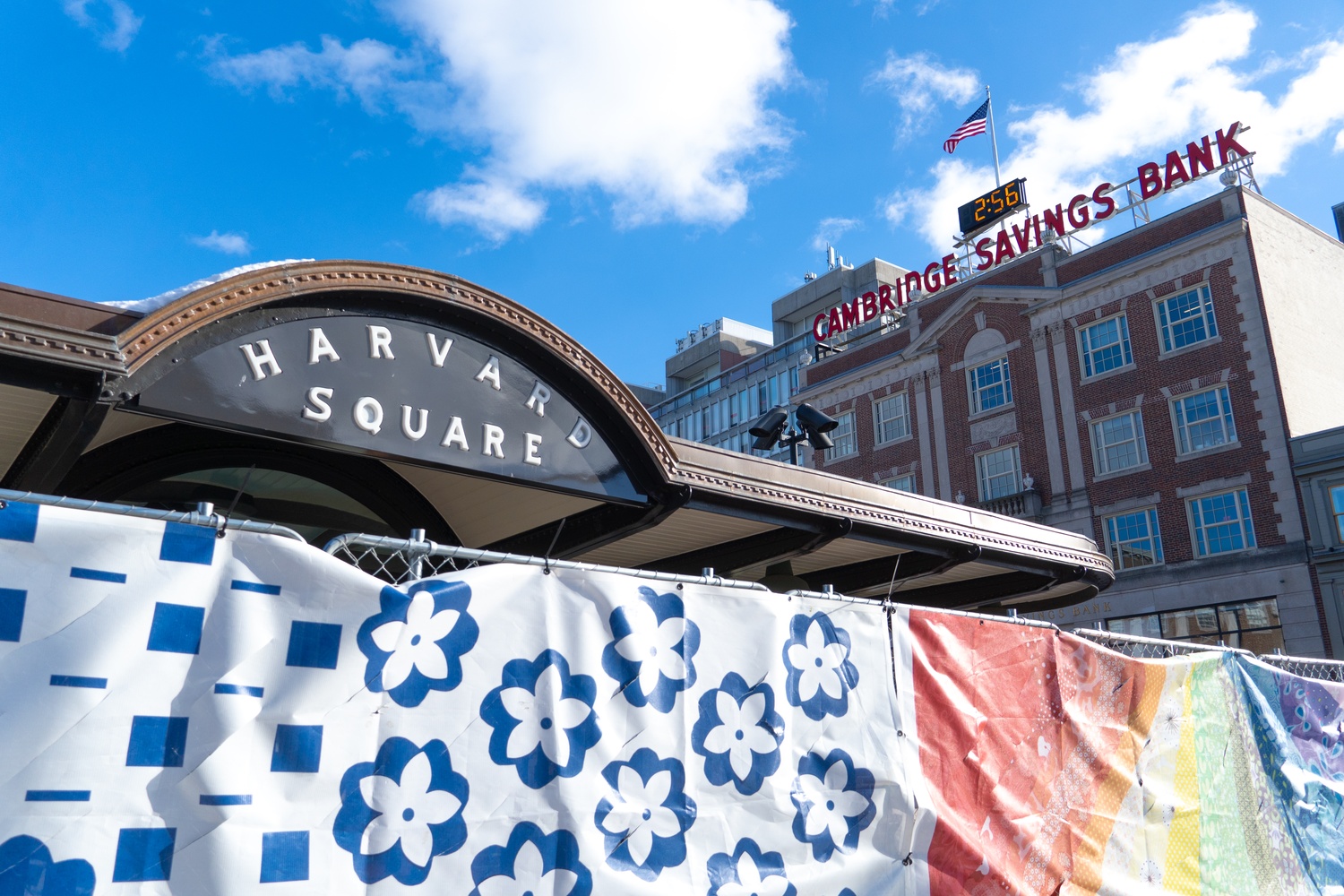
News
Nearly 200 Harvard Affiliates Rally on Widener Steps To Protest Arrest of Columbia Student

News
CPS Will Increase Staffing At Schools Receiving Kennedy-Longfellow Students

News
‘Feels Like Christmas’: Freshmen Revel in Annual Housing Day Festivities

News
Susan Wolf Delivers 2025 Mala Soloman Kamm Lecture in Ethics

News
Harvard Law School Students Pass Referendum Urging University To Divest From Israel
Local Black-Owned Soapmaking Business Wins State-Wide Sustainability Award

The Sustainable Business Network of Massachusetts recently recognized Artifact Soapworks — a Cambridge-based, Black-owned business — as one of the most environmentally conscious small businesses in Massachusetts.
The business is owned by Cambridge resident Barbara A. Thomas, who makes and sells soaps out of organic, biodegradable ingredients. Thomas was one of seven small business owners around Massachusetts to receive a 2024 Sustainable Business Award earlier this month. The SBN, which grants the award annually, is a non-profit organization that focuses on creating a greener local economy.
Thomas said she was “shocked” and “proud” to have won a 2024 Sustainable Business Award.
“I had no idea that a small business as small as mine, let alone someone working out of their studio, was on the radar for such a prestigious award,” Thomas said. “Because the types of people that win this award are farms or indigenous shellfishers or people with brick-and-mortar.”
Thomas sources her soap-making ingredients from local farms and businesses. She purchases olive oil and shea butter from Catania Oils, a family-operated business in Ayer, Massachusetts. She also practices sustainable production, often using manual tools to limit her carbon footprint.
Thomas said her passion for soapmaking began during her time as studying integrated chemical engineering as a student at MIT in the early 1990s. One of her professors offered extra credit to students who executed batch processing projects outside of class — and one of those projects was soapmaking.
“I decided to make soap, and I started giving it to my family and friends during Christmastime,” Thomas said. “Just like when you have, like, a fruitcake that you give out – something that’s traditional and delicious or only expected during the holiday seasons in December.”
After her family began spreading her soap to their friends and family in New York, Thomas said she decided to turn Artifact Soapworks into an LLC.
True to its name, Artifact Soapworks primarily sells soaps in the shapes of famous figures and statues — including soap-based models of the Venus of Willendorf, gargoyles, and Buddha.
“Anyone can make square soap, but I like to make soaps that look like artifacts,” Thomas said.
Not only are Thomas’s soaps shaped by molds — they are shaped by Thomas’s values and life experiences. She said she strives to be honest with her customers, use clean, primarily vegan ingredients, and use chemical engineering principles to design soaps that are good for the environment and the people who use them.
“There are all these other companies out there making square soap and making promises,” Thomas said. “I just tell people my soap will clean you.”
In addition to soapmaking, Thomas teaches people how to make their own soap in order to spread awareness of the environmental impact of using soap.
“Some of the people who take my class do start their own soap businesses,” Thomas said. “And I’m like, ‘You don’t need to outsource to other countries, there are local places here you can use and this is the best way that I can teach you to save water or to upcycle soap molds.’”
Artifact Soapworks also took part in the Black History Month Marketplace Pop-Up in Harvard Square earlier this month. Thomas said this was a good opportunity to showcase her online business, as well as other Black-owned businesses, to the local community.
“February serves as a vital annual commemoration that acknowledges and celebrates the profound contributions of the black diaspora,” Thomas said.
Thomas says that the pop-up also raises awareness about the challenges of being a Black business owner, especially in an expensive area such as Cambridge.
“This month, coming together as black business owners, or just acknowledging Black History Month, it serves as a catalyst for difficult, but necessary conversations about systemic racism, both historically and present day,” Thomas said.
“Me, by choice, decided to be a home business, but some people aren’t doing pop-ups by choice,” Thomas added. “They want a store, and they’re looking for something that they can afford near their home here in Cambridge.”
– Staff writer Kevin Zhong can be reached at kevin.zhong@thecrimson.com.
– Staff writer Jaya N. Karamcheti can be reached at jaya.karamcheti@thecrimson.com.
Want to keep up with breaking news? Subscribe to our email newsletter.
Most Read
- 2 Years After Affirmative Action Ruling, Harvard Admits Class of 2029 Without Releasing Data
- Harvard Suspends Research Partnership With Birzeit University in the West Bank
- Give the Land Up — Or Shut Up
- More Than 600 Harvard Faculty Urge Governing Boards To Resist Demands From Trump
- Russian HMS Researcher Detained at Louisiana ICE Facility After Visa Revocation
From Our Advertisers

Over 300+ courses at prestigious colleges and universities in the US and UK are at your disposal.

With innovative financial tools combined with financial education, Collegiate empowers students to take control of their finances and build confidence in their money management skills.

Serve as a proctor for Harvard Summer School (HSS) students, either in the Secondary School Program (SSP), General Program (GP), or Pre-College Program.

With an increasingly competitive Law School admissions process, it's important to understand what makes an applicant stand out.

Welcome to your one-stop gifting destination for men and women—it's like your neighborhood holiday shop, but way cooler.

Admit Expert is a premium MBA admissions consulting company, helping candidates secure admission to top B-schools across the globe with significant scholarships.
